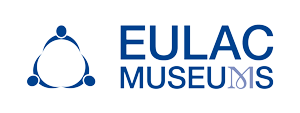Page 3 of 4
Points to emerge from papers, discussions and workshops include:
- The conference opened with a summary of the history and background of the definition and its iterations but highlighted the need for new thinking (if not a new version) because of the emergence of new kinds of museums.
- The fact that the current ICOM definition is embedded in several national and international laws and conventions means that radical changes would require changes in legislation and protocols.
- New models of museums covered during the day included intangible heritage, community museums, the idea of the territory museum, favela museums, pop-up and temporary museums (e.g. a Museum of Removals in Rio set up in an area where houses were removed for the Olympics).
- The round table discussion contrasted the use of the UK’s Museums Association definition which is embedded in the Accreditation process (which is necessary for recognition and for accountability for funding, grants etc) and small, independent community-based museums, organisations often self-identifying as museums but not professionalised. The ‘real world’ effect of having a definition (ICOM or MA etc) is a professionalised museum. This can marginalise other types which do not quite fit the definition. This was also an issue highlighted in a paper about some East African museums which are often set up by one individual committed to preserving local heritage, an entity which does not fit comfortably into existing models.
- There was discussion about the principles which should guide museums, and some of their attributes or values such as ‘truthfulness’, ‘authenticity’, ‘responsibility’, ‘independence’.
- Phrases in the current identification which gave rise to comments or questions during the papers
- A museum is an institution – bureaucratic, sometimes a legal entity
- non-profit – many museums depend on commercial activities to survive
- permanent – a question about sustainability, for example if the state doesn’t have or distribute funding evenly, some museums are unsustainable without funding
- in service of society – all agreed museums have a social role, but which society – who is in charge? Who is asking questions in the first place?
- An audience activity with post-it notes and questions about the wording of the definition produced the following written feedback.

